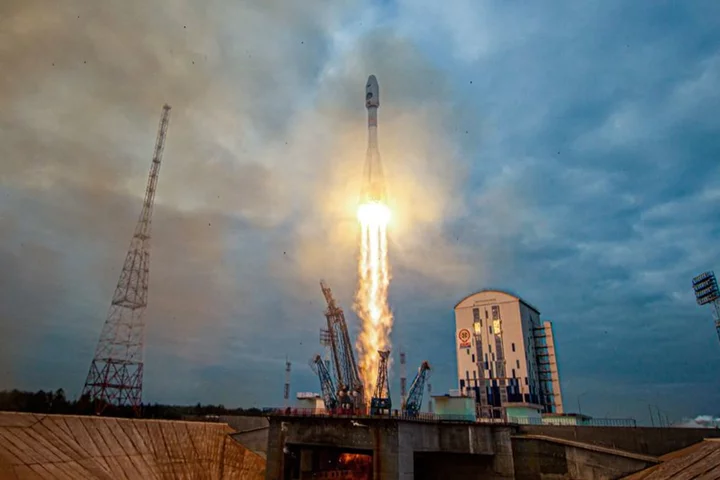
Kremlin plays down moon landing failure, says space programme will continue
MOSCOW (Reuters) -The Kremlin on Tuesday said that the failure of Russia's Luna-25 mission to the Moon earlier this month
2023-08-29 17:16

DeSantis super PAC pumps more than $12 million into major ad buy
Never Back Down, the super PAC backing Ron DeSantis' presidential campaign, made major additions to its advertising reservations Friday, spending more than $12 million booking airtime in the fall, mostly in Iowa.
2023-08-27 00:21
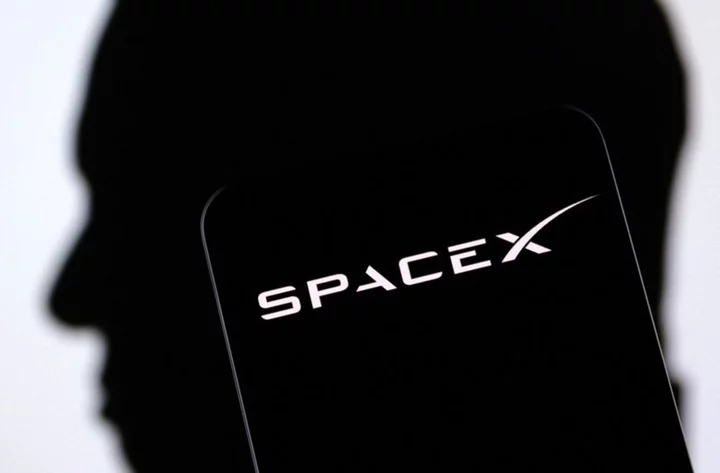
SpaceX lawsuit could be key test of US policy on bias against refugees
By Daniel Wiessner A new lawsuit accusing SpaceX of illegally refusing to hire asylum recipients and refugees could
2023-08-26 07:52

Tibet profile
Provides an overview of Tibet, including key dates and facts about this autonomous region of China.
2023-08-25 23:57

China country profile
Provides an overview of China, including key dates and facts about this Asian country.
2023-08-25 23:54

Xinjiang profile
Provides an overview of Xinjiang, including key dates and facts about this autonomous region of China.
2023-08-25 23:53
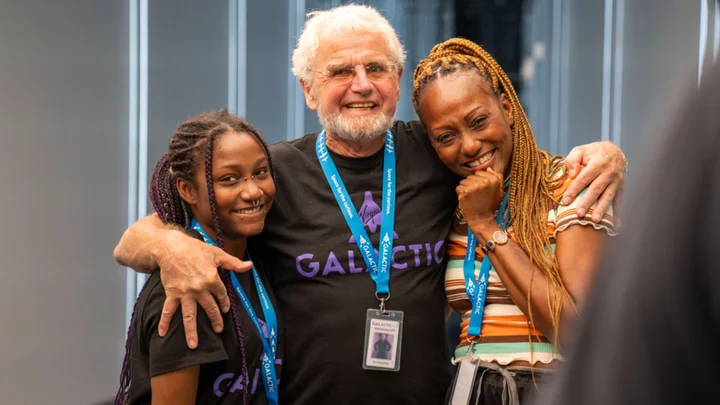
Virgin Galactic: Student Ana Mayers on going to space with her mum
Two weeks after she was in space with her mum, Ana Mayers is going back to university in Scotland.
2023-08-25 18:53

Mysterious ‘dark spot’ on Neptune seen from Earth for the first time
Scientists have seen one of the mysterious “dark spots” on Neptune from Earth for the first ever time. Researchers spotted the feature using the European Southern Observatory’s Very Large Telescope, or VLT. Using that telescope, astronomers were able to examine a large dark spot – which was joined by a smaller, bright spot, they said, of a kind that has never seen before. Scientists still do not know why those spots form on Neptune’s blue atmosphere. But they hope that the new observations could help answer questions about their origin. “Since the first discovery of a dark spot, I’ve always wondered what these short-lived and elusive dark features are,” said Patrick Irwin, professor at the University of Oxford and lead investigator of the study. It has already helped rule out one possibility: that the dark spots are caused when the clouds on the planet clear. The observations instead suggest that the spot is formed when air particles make a layer below the main one go darker, caused by ice and haze mixing in the atmosphere. Understanding the spots has been difficult because they leave the planet’s surface as mysteriously as they arise. They have also been difficult for researchers to actually examine, given the difficulty of spotting them through telescopes. Previously, scientists were forced to send spacecraft to see the spots, and the first was observed in 1989, when Nasa’s Voyager 2 flew past. It disappeared a few years later. In recent years, scientists have been able to examine them with the Hubble Space Telescope, which has seen more spots on the atmosphere. When it did so, astronomers were able to point ground-based telescopes towards them, allowing for more detailed research. “This is an astounding increase in humanity’s ability to observe the cosmos,” said Michael Wong, a researcher at the University of California, Berkeley and a co-author on the paper. “At first, we could only detect these spots by sending a spacecraft there, like Voyager. “Then we gained the ability to make them out remotely with Hubble. Finally, technology has advanced to enable this from the ground.” The new observations allowed scientists to examine the spot using the VLT’s Multi Unit Spectroscopic Explorer, which let them split the light from Neptune and the spot into its component colours. That in turn means that astronomers can understand the height at which the spot sits, and how the atmosphere is composed. As well as helping examine the dark spots, scientists also saw a surprise result: another, entirely new kind of bright spot. “In the process we discovered a rare deep bright cloud type that had never been identified before, even from space,” said Wong. The work is described in a new paper, ‘Cloud structure of dark spots and storms in Neptune’s atmosphere’, published in Nature Astronomy. Read More Mysterious dark spot on Neptune detected from Earth for the first time We just received the first ever pictures taken near the Moon’s uncharted south pole Chandrayaan-3 mission rover exits Moon lander to explore lunar south pole Mysterious dark spot on Neptune detected from Earth for the first time We just received the first ever pictures taken near the Moon’s uncharted south pole Chandrayaan-3 mission rover exits Moon lander to explore lunar south pole
2023-08-24 23:24

US House committee leader wants probe of space command HQ decision
WASHINGTON The chairman of the U.S. House of Representatives Armed Services Committee on Thursday said he has requested
2023-08-24 22:49
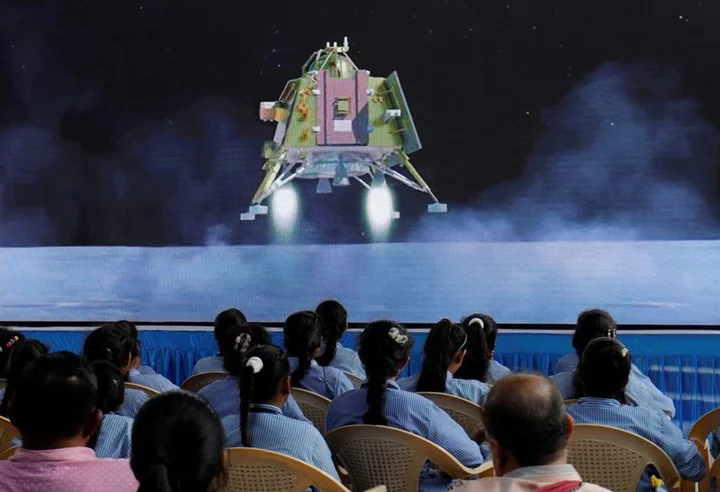
Chandrayaan-3 rover rolls onto moon's surface as ecstatic India celebrates
By YP Rajesh, Sakshi Dayal NEW DELHI (Reuters) -The moon rover of India's Chandrayaan-3 exited the spacecraft on Thursday to
2023-08-24 17:57
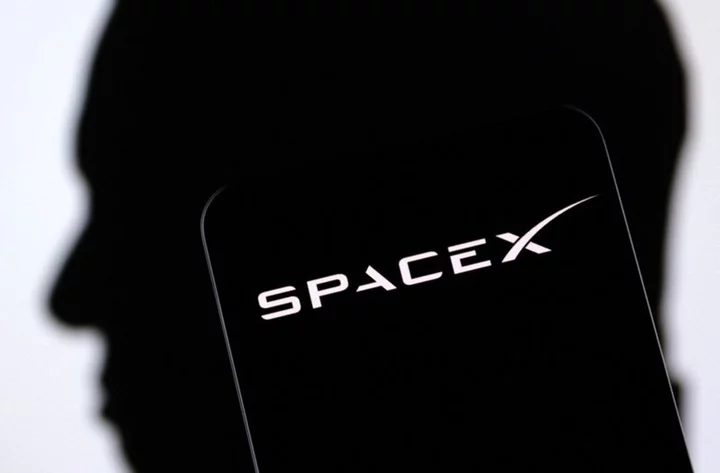
SpaceX working with Cloudflare to speed up Starlink service- The Information
(Reuters) -Elon Musk-owned SpaceX is working with Cloudflare to boost the performance of its satellite internet service Starlink, the Information
2023-08-24 03:49
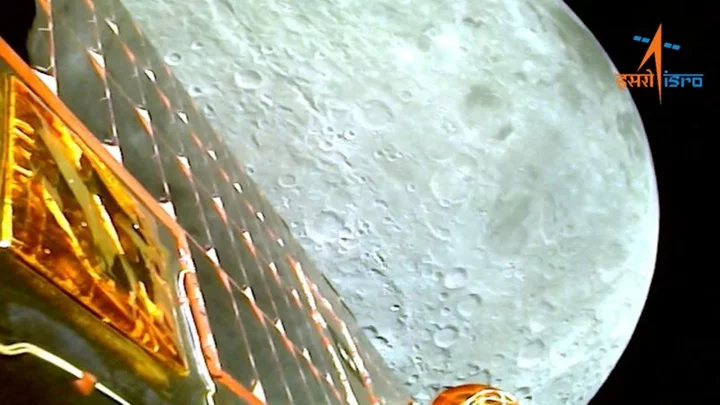
Explainer-Why are countries racing to the moon's heavily cratered south pole?
BENGALURU/WASHINGTON India's space agency landed a spacecraft on the moon's south pole on Wednesday, a mission that will
2023-08-23 21:51
